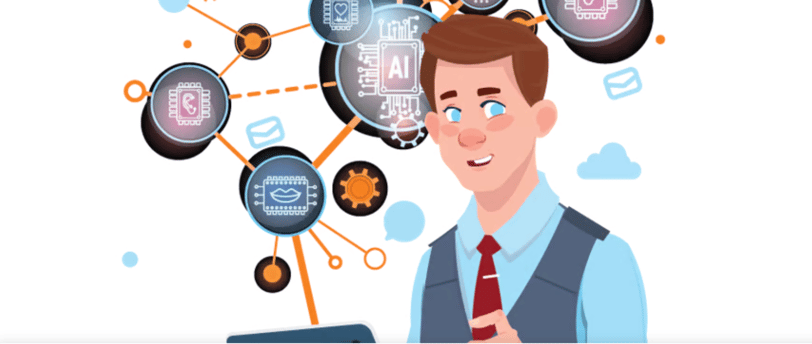The AI Revolution: New Opportunities for Non-Tech Professionals
Here’s a look at some of the most promising opportunities in an AI-driven world.
HEALTHCARE
Dr. Manish Shrivastava
4/1/20253 min read


The AI revolution is not just about job losses—it’s also creating a wave of exciting new opportunities for non-tech professionals. While automation is transforming traditional roles, it is simultaneously opening up new career paths that value human skills such as creativity, critical thinking, and emotional intelligence. If you’re adaptable and open to learning, AI can be your ally, not your adversary. Here’s a look at some of the most promising opportunities in an AI-driven world.
New Career Opportunities in the AI Era
1. AI-Powered Content Curator – AI can generate content, but it needs human oversight for relevance, tone, and cultural sensitivity. Content curators will play a key role in ensuring AI-generated material aligns with brand identity and audience expectations.
2. AI-Assisted Marketing Strategist – AI tools can analyze vast amounts of customer data, but humans are needed to interpret insights, craft compelling campaigns, and build relationships with customers.
3. Upskilling and AI Training Facilitator – As AI tools become more common, professionals who can teach others how to use them effectively—especially in small businesses and corporate settings—will be in high demand.
4. Human-Centric AI Consultant – Companies will require specialists who understand AI’s capabilities and limitations to advise on its ethical and practical applications in various industries.
5. Customer Experience Manager – While AI chatbots handle routine queries, human professionals will be essential for handling complex customer interactions and ensuring personalized experiences.
6. AI-Enhanced HR and Talent Development Specialist – AI can analyze workforce trends and predict employee needs, but HR specialists will be needed to implement insights, enhance employee engagement, and nurture workplace culture.
7. Personal AI Coach – As individuals seek to integrate AI into their personal and professional lives, AI coaches can help people optimize productivity using AI-powered tools like ChatGPT and automation assistants.
8. Smart Home Consultant – With AI-driven home automation on the rise, professionals who can advise customers on setting up smart home systems will be in demand.
9. AI-Powered Healthcare Coordinator – While doctors focus on treatment, coordinators will manage AI-driven health insights, ensuring patients understand and act on their AI-generated reports.
10. AI-Based Supply Chain Manager – AI can predict inventory needs and optimize logistics, but professionals are required to oversee AI decisions and resolve unforeseen supply chain challenges.
Where Jobs Are at Risk
While AI presents new opportunities, it also threatens traditional roles that involve repetitive tasks. Here are some areas where job losses are likely:
1. Administrative and Clerical Roles – AI can handle scheduling, data entry, and document processing, reducing the need for secretaries, office assistants, and clerks.
2. Bookkeeping and Financial Record-Keeping – AI-driven accounting software is making traditional bookkeeping roles redundant by automating tax calculations, invoicing, and financial reporting.
3. Customer Service Representatives – AI chatbots and virtual assistants are replacing call center agents by handling customer inquiries more efficiently.
4. Retail and Sales Associates – AI-driven inventory management and self-checkout systems are reducing the need for human sales staff in physical stores.
5. Data Entry Jobs – AI’s ability to process and analyze vast amounts of data instantly makes manual data entry roles obsolete.
6. Basic Graphic Design Jobs – AI tools like Canva and Midjourney are automating design processes, minimizing the demand for entry-level designers.
7. Market Research Analysts – AI-powered analytics tools can generate insights faster and more accurately than humans, reducing the need for traditional market research roles.
8. Legal Assistants and Paralegals – AI can draft contracts, conduct legal research, and analyze case law, significantly cutting down the need for legal support staff.
9. Manufacturing and Assembly Line Jobs – AI-driven robotics are replacing human workers in repetitive production tasks.
10. Medical Transcriptionists – AI-driven speech recognition software is making manual transcription redundant in the healthcare sector.
How to Prepare for the Future
To stay relevant in the evolving job market, non-tech professionals must focus on skills that AI cannot easily replicate. Here’s how you can prepare:
Develop Soft Skills – Communication, leadership, and critical thinking are irreplaceable by AI.
Learn to Work with AI – Familiarize yourself with AI tools relevant to your industry, such as ChatGPT for writing or Tableau for data visualization.
Adopt Lifelong Learning – Stay updated with new technologies and be willing to reskill as industries evolve.
Focus on Human-Centric Roles – AI lacks emotional intelligence, making careers in counseling, coaching, and relationship management future-proof.
The AI revolution is not about job losses alone—it’s also about new beginnings. While some traditional roles may decline, countless new opportunities are emerging for those willing to adapt. The key is to adopt AI as a tool, not a threat, and to leverage your uniquely human skills to thrive in the AI-powered future. Let’s prepare for this transformation together—share your thoughts in the comments!
Connect
Your partner in growth, market expansion, and digital execution across industries.
shri@medora.biz
+62-822-10-20-7000
© 2025. All rights reserved.
